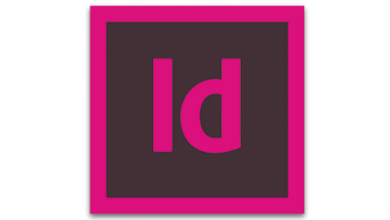Ultimate Guide to Business Blogging to Boost Your Business

What is blogging?
Blogging refers to the practice of regularly publishing written content online in the form of blog posts. These posts can cover a variety of topics and can be written by individuals, organizations, or businesses. Blogs have become an increasingly popular medium for sharing ideas, opinions, and information with a global audience.
The importance of blogging for businesses
Blogging is an essential tool for businesses of all sizes and industries. It can help companies to build their brand and reputation, establish themselves as thought leaders in their industry, and drive traffic to their website. Additionally, blogging can also help businesses to generate leads, increase customer engagement, and improve their search engine rankings.
This article will explore the importance of blogging for businesses in greater detail. In the following sections, we will discuss how blogging can be used to build brand identity and reputation, establish authority in your industry, and drive traffic to your website.
Building Your Brand and Reputation
A. Developing brand identity through blogging
Blogging provides businesses with an opportunity to develop their brand identity by creating content that is consistent with their values, mission, and vision. By publishing blog posts that reflect the personality and values of your brand, you can build a more personal connection with your audience and differentiate your business from your competitors.
B. Building brand reputation through thought leadership
Blogging can also help businesses to establish themselves as thought leaders in their industry. By sharing insights and opinions on topics related to your industry, you can demonstrate your expertise and provide value to your audience. This, in turn, can help to build trust and credibility with potential customers.
C. Establishing authority in your industry
Through consistent and high-quality blogging, businesses can establish themselves as authorities in their industry. This can be accomplished by creating content that is informative, relevant, and valuable to your target audience. By becoming a go-to source of information for your industry, you can attract new customers and establish your business as a trusted leader in your field.
Driving Traffic to Your Website
A. The role of blogging in increasing website traffic
One of the primary benefits of blogging for businesses is its ability to drive traffic to their website. By regularly publishing new content on your blog, you can provide visitors with a reason to return to your site and engage with your brand. This increased traffic can also improve your website’s search engine rankings, making it easier for potential customers to find you online.
B. Leveraging SEO strategies for blogging
To maximize the impact of your blog on your website’s traffic, it’s important to leverage SEO strategies in your blog content. Size eşsiz zevk yaşatacak istanbul escort numaraları elinizin altında. This can include optimizing your blog posts for relevant keywords, using internal and external links to improve your site’s authority, and ensuring that your blog content is easy to read and shareable on social media.
C. Creating shareable content to reach a wider audience
Finally, blogging can help businesses to reach a wider audience by creating content that is shareable on social media. By creating blog posts that are informative, entertaining, or emotionally compelling, you can encourage your readers to share your content with their own followers. This, in turn, can help to expand your reach and attract new visitors to your website.
Engaging with Your Audience
A. Creating a two-way communication channel with customers
One of the primary benefits of blogging is that it provides businesses with a two-way communication channel with their customers. Through comments and social media, businesses can engage with their audience, answer questions, and provide additional value beyond their blog posts. This can help to build a stronger connection with your audience and create a loyal customer base.
B. Building a community through comments and social media
Blogging can also help businesses to build a community around their brand. By encouraging comments and discussion on your blog posts, you can create a space for your audience to connect with each other and with your brand. Additionally, social media can be used to extend these conversations beyond your blog and reach a wider audience.
C. Responding to feedback and building customer loyalty
By responding to feedback from your audience, businesses can demonstrate that they value their customers and are committed to improving their products and services. This can help to build customer loyalty and increase the likelihood of repeat business.
Generating Leads and Conversions
A. The role of blogging in generating leads
Blogging can be a powerful tool for generating leads for your business. By creating content that addresses the pain points and challenges of your target audience, you can attract potential customers to your website and encourage them to learn more about your products or services.
B. Using call-to-actions to drive conversions
To convert these leads into customers, businesses can use call-to-actions (CTAs) in their blog content. CTAs can be used to encourage visitors to take a specific action, such as filling out a form or making a purchase. By strategically placing CTAs in your blog content, businesses can increase the likelihood of conversions.
C. Creating content that addresses customer pain points
Finally, to generate leads and conversions through blogging, businesses must create content that addresses the pain points and challenges of their target audience. By creating content that provides real value to your readers, you can establish your brand as a trusted authority and increase the likelihood of conversions.
Analyzing and Improving Your Performance
A. Tracking and analyzing blog performance
To improve the effectiveness of your blog, it’s important to track and analyze its performance. This can include tracking metrics such as website traffic, engagement rates, and conversion rates to identify areas of improvement.
B. Identifying areas of improvement
By analyzing your blog’s performance, businesses can identify areas of improvement and make changes to their strategy. For example, if a particular type of blog post is performing well, you may want to create more content on that topic. Alternatively, if a particular type of content is not performing well, you may want to adjust your strategy to focus on other topics or formats.
C. Adjusting strategies for better results
Finally, by adjusting your blogging strategy based on your analysis, businesses can improve the effectiveness of their blog over time. This may include experimenting with new types of content, optimizing your content for SEO, or improving your social media promotion strategy.
Monetizing Your Blog
A. The potential for monetizing a blog
While blogging can be a powerful tool for promoting your business, it can also be a source of revenue in its own right. By monetizing your blog through advertising, affiliate marketing, or sponsored content, businesses can generate additional income streams.
B. The role of affiliate marketing and sponsored content
Affiliate marketing involves promoting products or services from other businesses in exchange for a commission on any resulting sales. Sponsored content, on the other hand, involves creating content that promotes a particular brand or product in exchange for payment. Both of these strategies can be effective ways to monetize your blog.
C. Choosing the right monetization strategy for your business
When choosing a monetization strategy for your blog, it’s important to consider your target audience and brand values. For example, if your audience is sensitive to advertising, you may want to focus on affiliate marketing rather than traditional display ads. Similarly, if your brand values transparency and authenticity, you may want to avoid sponsored content that doesn’t align with your values.
Ultimately, the key to successful blog monetization is to provide value to your audience while also generating revenue for your business. This can be achieved by carefully selecting the right monetization strategy and ensuring that it aligns with your brand values and target audience.
Conclusion
In conclusion, blogging is a valuable tool for businesses for a variety of reasons. It can help to build brand identity, increase website traffic, engage with customers, generate leads and conversions, analyze and improve performance, and even generate revenue through monetization strategies such as affiliate marketing and sponsored content.
While blogging does require an investment of time and resources, the benefits it can provide make it a worthwhile investment for businesses of all sizes. By creating valuable content that resonates with your target audience, businesses can establish themselves as thought leaders in their industry and build a loyal customer base.
If your business is not yet blogging, now is the time to start. By creating valuable content that speaks directly to your target audience, you can differentiate yourself from competitors and establish a strong brand identity. And if you’re already blogging, don’t be afraid to experiment with new types of content or monetization strategies to continue growing and improving your blog over time.
FAQs on Business Blogging
Q: How often should I blog for my business?
A: It depends on your goals and resources. However, consistency is key, so it’s recommended to blog at least once a week. If you have more resources, you can aim for two to three times a week or even daily blogging. You can also use a Free Blogging WordPress theme to make your blogging experience easier.
Q: Can I outsource my business blog?
A: Yes, you can outsource to writer if you want effective blog writing to your business blog. However, it’s important to ensure that the writer understands your brand voice and values, and produces high-quality, original content that resonates with your target audience.
Q: How long should my blog posts be?
A: The ideal length of a blog post varies depending on the topic and industry. However, research suggests that longer blog posts (around 1,500 to 2,500 words) tend to perform better in terms of SEO and engagement.
Q: Can I use my personal blog for my business?
A: It’s not recommended to use a personal blog for your business as it may not align with your brand identity and values. It’s better to create a separate blog for your business and focus on producing content that speaks directly to your target audience.
Q: How do I measure the success of my business blog?
A: You can measure the success of your business blog through metrics such as website traffic, engagement (comments, social shares), leads and conversions, and revenue generated from monetization strategies. It’s important to track these metrics regularly and adjust your strategies accordingly.





